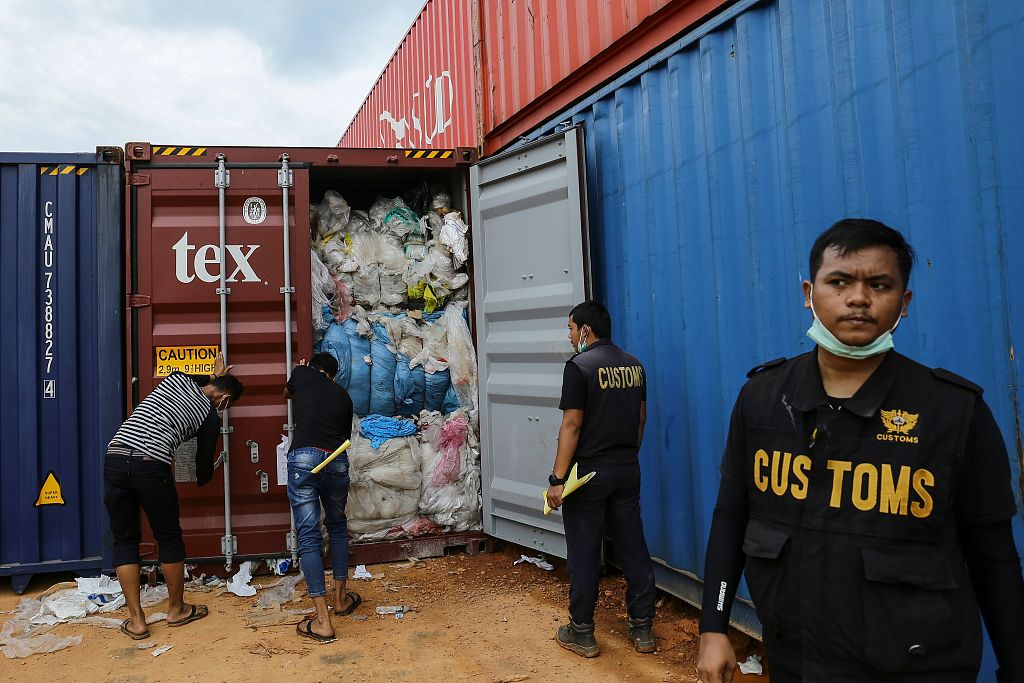Indonesia said Tuesday it would send more than 210 tonnes of garbage back to Australia, as Southeast Asian nations push back against serving as dumping grounds for foreign trash.

Photo: VCG
The eight containers seized in Surabaya city should have contained only waste paper, but authorities also found hazardous material and household trash including plastic bottles and packaging, used diapers, electronic waste and cans, a spokesman for the East Java customs agency told AFP.
Following the inspection the Indonesian environment ministry recommended "the items be re-exported," the agency said in a separate statement Monday.
"This is done to protect the public and Indonesian environment, especially in East Java, from B3 waste," it added, referring to hazardous and toxic materials.
Australian company Oceanic Multitrading sent the waste to Indonesia with help from Indonesian firm PT. MDI, authorities said.
China's decision in 2018 to ban imports of foreign plastic waste threw global recycling into chaos, leaving developed nations struggling to find places to send their waste.
Huge quantities of rubbish have since been redirected to Southeast Asia, but opposition to handling exported trash is growing in the region.
Indonesia announced last week it was sending back 49 containers full of waste to France and other developed nations.
In May, neighbouring Malaysia announced it was shipping 450 tonnes of imported plastic waste back to its sources, including Australia, Bangladesh, Canada, China, Japan, Saudi Arabia and the United States.
The Philippines, meanwhile, returned about 69 containers of rubbish back to Canada last month, putting an end to a diplomatic row between the two countries.
Global concern over plastic pollution has been spurred by shocking images of waste-clogged rivers in Southeast Asia and accounts of dead sea creatures found with kilos of refuse in their stomachs.
Around 300 million tonnes of plastic are produced every year, according to the Worldwide Fund for Nature (WWF), with much of it ending up in landfills or polluting the seas, in what has become a growing international crisis.


